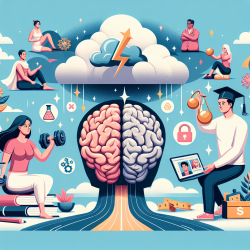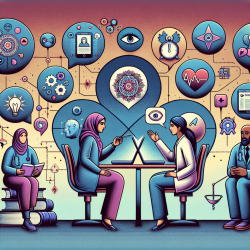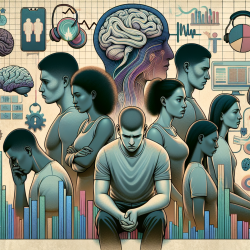The journey of brain tumor patients and their caregivers is fraught with challenges that extend beyond medical treatment. Recent research conducted by the University of California, San Francisco (UCSF) has shed light on the specific needs of these individuals, providing valuable insights for practitioners seeking to improve their skills and services.
The Importance of Addressing Quality of Life
The study highlights that quality of life (QOL) is a critical aspect that should not be overlooked in the management of brain tumors. While medical treatments aim to prolong survival, understanding and improving QOL can significantly impact both patients and caregivers. The research emphasizes that improved QOL is associated with prolonged survival in cancer patients.
Key Findings from the Research
The study utilized tailored questionnaires to assess the needs of brain tumor patients and their caregivers across various domains: disease symptoms/treatment, healthcare provider interactions, daily living/finances, and emotional needs. The findings revealed several areas where both patients and caregivers expressed high importance but low satisfaction:
- Understanding the Cause: Both groups expressed a strong desire to understand what causes brain tumors.
- Energy Management: Dealing with patients' lower energy levels was a significant concern.
- Nutritional Guidance: Identifying healthful foods and activities for patients was crucial yet lacking.
- Healthcare Access: Telephone access to knowledgeable healthcare providers was deemed essential.
- Insurance Information: Understanding medical insurance coverage was a major area of dissatisfaction.
- Employer Support: Both groups highlighted the need for better support from employers regarding their situation.
The Emotional Burden on Caregivers
The study found that caregivers face a significant emotional burden. Nine out of ten items in the emotional realm were identified as important but needing improvement. Key areas included:
- Anxiety and Stress Management: Obtaining support to deal with anxiety or stress was crucial for caregivers.
- Psychoeducational Support: Caregivers expressed a need for opportunities to talk to someone who has been through similar experiences.
The Role of Practitioners in Addressing These Needs
This research underscores the importance of practitioners in addressing both medical and psychosocial needs. To improve services for brain tumor patients and their caregivers, practitioners should consider implementing the following strategies:
- Psychoeducational Interventions: Providing clear communication and repeated information in various formats can help address knowledge gaps.
- Counseling Services: Offering access to social workers or psychologists can help caregivers cope with emotional challenges.
- Nutritional Support: Collaborating with nutritionists can provide patients with dietary guidance tailored to their needs.
- Support Groups: Encouraging participation in support groups can offer emotional relief and shared experiences for both patients and caregivers.
The Path Forward: Encouraging Further Research
This study serves as a starting point for understanding the complex needs of brain tumor patients and their caregivers. Practitioners are encouraged to delve deeper into this research area to develop more comprehensive care models. By focusing on individual circumstances and specific needs, healthcare services can be tailored to improve overall quality of life for these populations.
If you are interested in exploring this topic further, I encourage you to read the original research paper: Identifying the needs of brain tumor patients and their caregivers.










